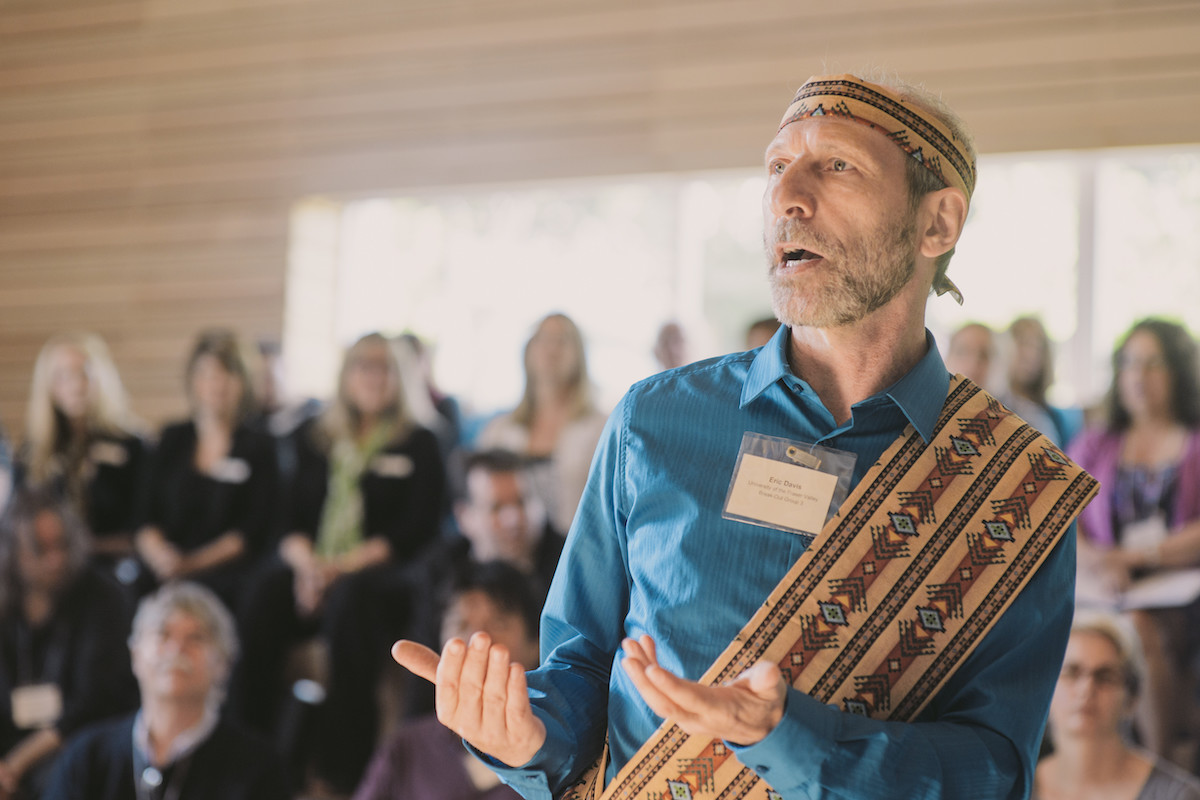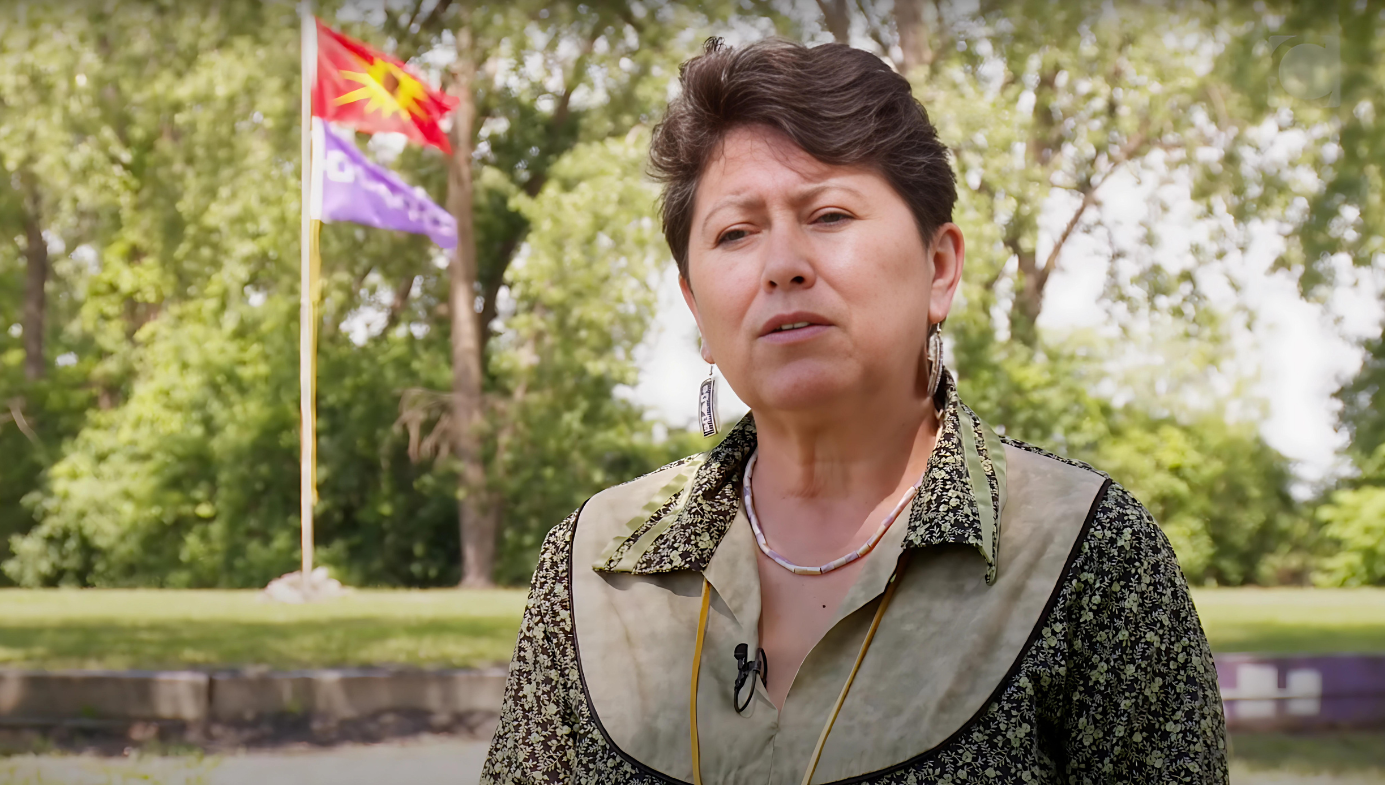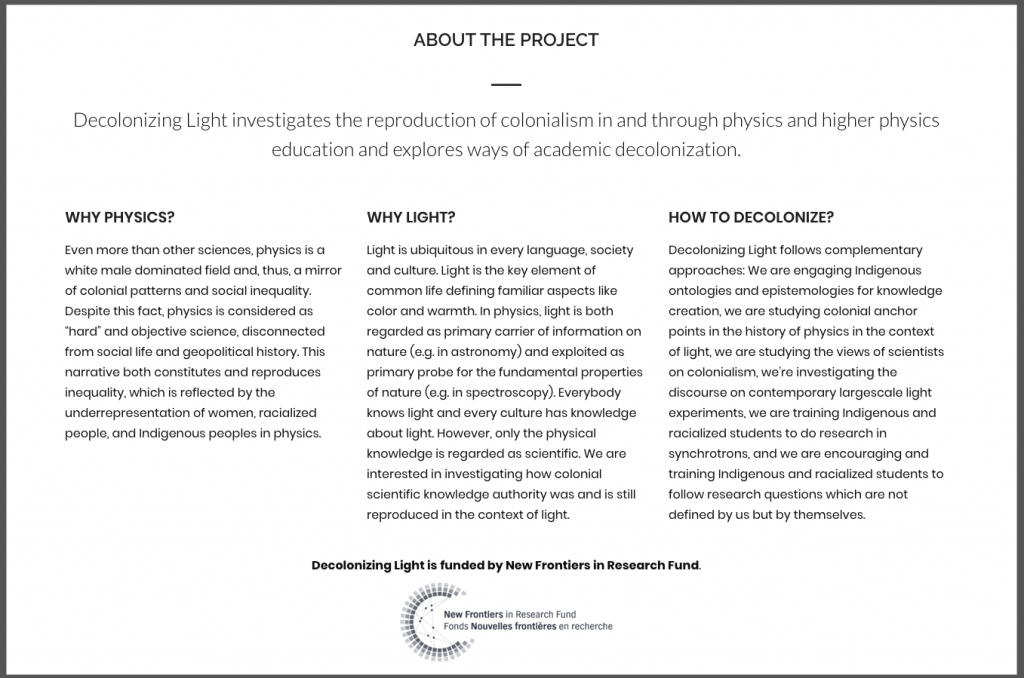Education
Exploring 'Other Ways of Knowing': The New Religious Threat to Science Education
In its most elaborate form, EDI subjects science to the same treatment as has already been meted out to the Western literary canon: a relentless deconstruction whereby each axiom, value, and commitment is presented as infected by cultural imperialism.

Following the killing of George Floyd by a Minneapolis police officer last month, an odd pattern has been playing out among major scientific institutions. In their public pronouncements, prestigious journals have not only professed their unqualified support for activists seeking to highlight the pervasiveness of racism in our society. They also have delivered fervent shows of contrition in regard to (usually unspecified) sins they’ve committed in the past and their “complicity” in racism more generally.
The prestigious journal Nature, for instance, issued a dramatically worded statement to the effect that it would be joining a movement to “#ShutDownSTEM #ShutDownAcademia #Strike4BlackLives, an initiative of STEM academics and organizations pausing their standard activities to focus on actions to eliminate anti-Black racism.” It also published an editorial confessing to accomplice status in regard to wide a range of crimes:
We recognize that Nature is one of the white institutions that is responsible for bias in research and scholarship. The enterprise of science has been—and remains—complicit in systemic racism, and it must strive harder to correct those injustices and amplify marginalized voices. At Nature, we will redouble our efforts to do so, and commit to establishing a process that will hold us to account on the many changes we need to make. In addition, we commit to producing a special issue of the journal, under the guidance of a guest editor, exploring systemic racism in research, research policy and publishing—including investigating Nature’s part in that.
The journal Science was more specific in its own statement of self-incrimination, written by its editor in chief, American chemist Holden Thorp:
The U.S. scientific enterprise is predominantly white, as are the U.S. institutions that Science’s authors are affiliated with. The evidence of systemic racism in science permeates this nation. Why are so few Scienceauthors from historically black colleges and universities? Why are the scientific areas studied more frequently by people of color continuously underfunded by the government? Why do students who are people of color have to remind society that they are almost never taught by someone who looks like them? Why has the United States failed to update its ways of teaching science when data show that people of color learn better with more inclusive methods?
Evidence of racism, such as is presented in these articles, is primarily traced to a lack of racial diversity among scientists. And there is no doubt that some minority groups are under-represented in many programs—this despite the fact that university admission offices and faculties, as well as funding bodies, have, for decades, worked to offer preferential opportunities to applicants from historically marginalized communities. But in recent years, political arguments surrounding the lack of diversity in education have become more intense and rhetorically ambitious. Many advocates now have turned against the very idea of objective meritocratic standards in education. Some accuse entire academic disciplines of being inherently racist.

A popular idea here is that different groups have different “ways of knowing,” different modes of sense-making, and even different epistemic paradigms. To insist on the exclusionary standard of “Western rationality” would therefore amount to suppressing black, Indigenous, or even female knowledges. And, since knowledge and power are said to form an indissociable nexus, the insistence on universal scientific standards is, by this logic, connected to the perpetuation of (male) white supremacy. This emerges from critical theory, a body of thought that casts truth as relative, and asserts that some ideas are accepted over others only because those in power perpetuate them.
The way to remedy this injustice, some therefore argue, is to explicitly politicize science so as to reveal it as a culturally biased enterprise. In Canada, where I live, this political project is often referred to as the “decolonization of the university,” and operates under the institutional umbrella of EDI (Equity, Diversity, and Inclusion). Though it sometimes couches itself in utilitarian or incremental terms (a demand for, say, better, more effective teaching methods that serve to develop the potential of all groups), the most far-reaching EDI initiatives effectively subordinate science to political activism and even mystical obscurantism.
In its most elaborate form, EDI subjects science to the same treatment as has already been meted out to the Western literary canon: a relentless deconstruction whereby each axiom, value, and commitment is presented as infected by cultural imperialism. This method of criticism has led, for example, to such oddities as feminist philosopher of science Sandra Harding’s suggestion that Newton’s laws might be accurately referred to as “Newton’s rape manual.” These critiques were once confined to social commentary that was distinct from the actual work of scientists. As I’ve learned first-hand, that may be changing.

About a year ago, I signed up for a graduate module on Equity, Diversity, and Inclusion in STEM fields hosted by the engineering faculty of Concordia University in Montreal. The course, now a full-semester offering, was organized by Dr. Tanja Tajmel, an expert in the area, and featured a week of seminars from international scholars who’d traveled to Montreal for the occasion. The course description indicated that they’d “apply a variety of types of gender and diversity perspectives on knowledge production, such as third and fourth wave feminism, critical race theory, postcolonialism, etc.”
Since my own research focuses on the obscurantist undercurrents associated with some of these theories, I was curious to see how they could be adapted to a scientific framework. I expected a clash of first principles, and was curious to see how such conflict would be handled by scientists, as opposed to cultural theorists (whose primary commitments I already knew well).
Central to Tajmel’s approach is the aforementioned idea that true inclusivity requires a metaknowledge of “other ways of knowing.” In its weak form, this principle gets to the uncontroversial (and even banal) proposition that every student learns best through a somewhat different pedagogical style. As such, many sensible (if sometimes impractical) recommendations have been put forth to help different kinds of students. To foster more egalitarian access to education, EDI experts argue, we should diversify our ways of teaching, create less hierarchical classrooms, value story-telling and other culture-specific ways to impart knowledge, pay attention to the inequities created by language differences and by the cultural biases of teaching materials and of professors, pay attention to the power dynamics in classrooms, actively encourage the participation of students whose identities have historically been socially framed as less scientifically adept, and so on.
In its stronger formulation, however, the idea of “other ways of knowing” goes further, to the assertion that not only is our way of learning essentially culturally-specific, but so, too, is our most fundamental mode of making sense of reality. In Canada, this translates into a demand for the inclusion of “Indigenous knowledges,” which are typically understood as being attained not through traditional scientific or rational means, but through a unique understanding of the universe that is particular to Indigenous peoples thanks to their relationship to the land and their singular cultural practices.

It’s worth noting that, in my experience, when Indigenous people speak of inclusivity, they usually tend to stress the importance of keeping scientific and cultural traditions separate, and of honouring each on its own terms. But to the (mostly) white professors who run universities and academic departments, the preferred approach—at least in theory—has become the opposite: to inflate the idea of a uniquely Indigenous way of knowing reality as a means to challenge the very idea that trans-cultural science can lead us to objectively understand a testable reality.
Dr. Tajmel leads an ongoing initiative—with Ingo Salzmann, associate professor of physics, chemistry, and biochemistry at Concordia University, and Dr. Louellyn White, professor of First Peoples Studies—which proposesto “decolonize” light by challenging “the reproduction of colonialism in and through physics and higher physics education.” The project is funded by the Canadian federal government through its New Frontiers in Research Fund. “Even more than other sciences, physics is a white male dominated field and, thus, a mirror of colonial patterns and social inequality,” reads the website. “Despite this fact, physics is considered as ‘hard’ and objective science, disconnected from social life and geopolitical history. This narrative both constitutes and reproduces inequality, which is reflected by the underrepresentation of women, racialized people, and Indigenous peoples in physics.”

This EDI initiative proposes to do what the editor of Science magazine seeks: achieve greater diversity amongst the ranks of physicists by deconstructing its white- and male-dominated culture of physics. But then comes the obscurantism:
Everybody knows light and every culture has knowledge about light. However, only the physical knowledge is regarded as scientific. We are interested in investigating how colonial scientific knowledge authority was and is still reproduced in the context of light. Decolonizing Light follows complementary approaches: We are engaging Indigenous ontologies and epistemologies for knowledge creation, we are studying colonial anchor points in the history of physics in the context of light, we are studying the views of scientists on colonialism, we’re investigating the discourse on contemporary largescale light experiments.
EDI advocates tend to utilize the opaque jargon germane to the critical humanities, which can serve to shield them somewhat from public scrutiny. But a clue as to what this jargon means comes from the reference to “Indigenous ontologies and epistemologies.” Brazilian anthropologist Eduardo Viveiros de Castro, a prominent instigator of the ontological turn in postcolonial theory, argues that the metaphysical assumptions undergirding the scientific project are little more than cultural biases, and calls for “the practice of the permanent decolonization of thought,” which, according to his English translator, philosopher Peter Skafish, would require that we start taking the knowledge of mediums and other supernaturalists seriously.

And, after all, why not? Even in Western culture, there was, until recently, a “diversity” of explanations for such basic phenomena as the movement of planets and the origin of humans—with many of Europe’s most important intellectuals insisting that the Bible provided an authoritative account of the universe. Now that we are regressing to this state of affairs in the name of inclusivity (albeit in non-Christian form), it would be hypocritical to discriminate between mysticisms. Skafish, unlike others, isn’t embarrassed to spell out the logical conclusions of this line of thought.
During one of the EDI sessions, I pushed this point and asked Dr. Tajmel if her project did not, ultimately, amount to the reintroduction of religion in science. She responded, without missing a beat, that science itself was a form of a religion. With political demands increasingly taking precedence over the pursuit of truth, it seems only a matter of time before Science and Nature get on board with that idea.
It seems perverse that the reintroduction of religion into scientific curricula would be seen as progressive—but perhaps no more perverse than the idea that black or Indigenous students must be allowed to take shelter in their own special metaphysical realms and ontological siloes. Just a few years ago, this would have been seen as an ugly form of racial essentialism. Yet racial essentialism is back in style thanks to the rise in popularity of critical race theory and related doctrines, according to which color-blind humanism is just another smokescreen for racism.
Shortly before the above-described seminar on EDI, I attended a conference on education hosted by my university. The panel included an Indigenous scholar and white academic “accomplices” (a term that now is replacing “allies” in the jargon of some activists) who referred to themselves as “settlers,” and spoke of “Canada” in scare-quotes. They described the need to dismantle the oppressive colonial power relations whereby a professor standing before a class imparts knowledge to his or her students (more egalitarian sharing circles are now preferred). They argued for a practice of “epistemic resistance” and “epistemic disobedience” to counter the condescending hegemony of “white knowledge.” As I see it, these demands seem tailored to ensure that students learned absolutely nothing in university except a bloated regard for their own internal realities.
Midway through the week-long EDI seminar, I struck up a conversation with one of the guest lecturers, a physics professor from South America. I pointed out that what many of her fellow lecturers seemed to be advocating for was the outright rejection of reason and logic in the evaluation of knowledge claims, something which, to my mind at least, amounted to rejecting much of the scientific method. “Well,” she said with a knowing smile, “the master’s tools will never dismantle the master’s house.”
This line, of course, belongs to the poet Audre Lorde. And one now often hears it cited to signal the need to unmask a racist essence at the core of our liberal institutions. But if the goal of EDI is really to help students of colour succeed in the sciences, does it not do them a disservice to suggest that their unique ways of knowing are somehow at odds with those of their white peers—and, indeed, with the very subject matter itself? Do Dr. Tajmel and her fellow diversity experts care about their students gaining the knowledge required to, say, advance their lives as employable physicists, engineers, researchers, and academics? Or is the point here to proselytize their hatred of the Western intellectual tradition? The two projects seem mutually exclusive.
In his classic account of the university’s capitulation to the politics of resentment, Allan Bloom, commenting on the 1969 takeover of a student-union building by militants at Cornell University, remarked that, at the darkest hour, the humanities and social sciences were left fending for themselves while natural scientists, confident that their disciplines existed safely beyond the political fray, silently watched their colleagues get kowtowed into submission by student activists revolting against what they perceived to be a racist canon. “The community of scholars,” Bloom bitterly reminisced, “proved to be no community. There was no solidarity in defence of the pursuit of truth.”
If the same scene played out in 2020, it seems more likely the scientists would indeed express solidarity—with the students. Recall that numerous public health experts, propelled into Twitter rhapsodies by ideological trends, have just encouraged massive public gatherings in the midst of a pandemic. The goal, one epidemiologist said, was “to change the narrative that those protesting [police brutality] were ‘unsafe’ and ‘putting people at risk.'” The public might be forgiven for finding this sudden change in “narrative” disconcerting on the part of a scientific establishment that, only days previously, had warned us of catastrophic consequences should social distancing measures be relaxed.
But then, perhaps I am just betraying my bias for “objective” reality. As science becomes increasingly politicized, such thinking could become obsolete. Instead, the “other ways of knowing” used to teach students will emerge from the demands of activists, not the fruits of science.






